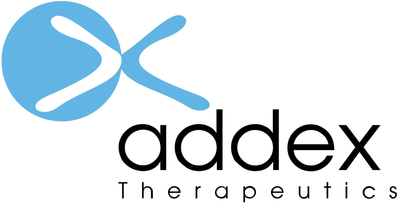

- Home
- Companies
- Addex Therapeutics
- Products
Addex Therapeutics products
Dipraglurant (Immediate Release) for PD-LID
Dipraglurant (Immediate Release), for the treatment of levodopa-induced dyskinesia associated with Parkinson’s disease (PD-LID).
Dipraglurant-ER for Dystonia (Blepharospasm)
We are developing an extended-release formulation of dipraglurant as a novel orally available mGlu5 NAM for the treatment of blepharospasm. There are many types of dystonia affecting up to 300,000 people in the United States. Blepharospasm is characterized by involuntary muscle contractions and spasms of the eyelid muscles resulting in sustained eyelid closure causing substantial visual disturbance or functional blindness.
Clinical and Pre-Clinical Pipeline
Dipraglurant for PD-Lid, Pain, SUD, NDD and Stroke Rehabilitation
Dipraglurant is a novel orally available highly selective metabotropic glutamate receptor subtype 5 negative allosteric modulator (mGlu5 NAM) which has completed Phase 1 and demonstrated efficacy in a Phase 2a proof of concept study for the treatment of levodopa-induced dyskinesia associated with Parkinson’s disease (PD-LID). This is a disease with significant commercial opportunity as improved therapies are needed.
Chronic Cough and Pain
Our license agreement with Indivior provides for a funded research program, under which we have the right to select drug candidates for exclusive development in certain indications outside of SUD. We plan to develop our selected drug candidates in CMT1a, chronic cough and pain. These indications have been validated with baclofen, an orthosteric agonist of GABAB and present a significant unmet medical need and commercial opportunity. We are in clinical candidate selection phase and expect IND enabling studies to be initiated in 2023.
For Mild Neurocognitive Disorders
mGlu2 NAM for the treatment of mild neurocognitive disorders, or mNCD. We are developing mGlu2 NAM as a novel orally available treatment for mNCD associated with Alzheimer’s disease, Parkinson’s disease and depressive disorders. The program is in clinical candidate selection phase and we expect to enter IND enabling studies early in H2 2023.
